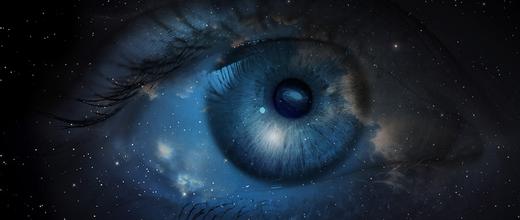The views expressed in our content reflect individual perspectives and do not represent the authoritative views of the Baha'i Faith.
When you die, does your entire life pass in front of you in a kind of panoramic review?
Many people—those who have undergone near-death experiences and those who h ave had a close brush with the end of their physical life—have reported such occurrences. They say the totality of their life passes in front of them in a kind of rapid review of their actions.
This kind of life review makes for a third parallel between Raymond Moody’s research on near-death experiences, detailed in his book Life After Life, and the Baha’i writings. The panoramic review of one’s life, an experience consistent with the vast majority of the people Moody interviewed as well as with the myriad subjects who have discussed the NDE in works published in the thirty years since Moody’s work, has reverberations throughout the Baha’i teachings, as well.
In near-death experiences, this kind of assessment, evaluation, or retrospective of one’s earthly performance is often described as being instigated by a nonverbal query from a “being of light.” The purpose in this review does not seem to be to rebuke, humiliate, or shame the individual, but rather to enable the soul to evaluate the accomplishments and failures of the physical existence. According to most accounts, the purpose of a panoramic life review is to instruct the subject in a most loving and gentle manner so that, having gained this insight, further progress may be accomplished:
When the light appeared, the first thing he said to me was “What do you have to show me that you’ve done with your life?”, or something to this effect. And that’s when these flashbacks started …
Now, I didn’t actually see the light as I was going through the flashbacks. He disappeared as soon as he asked me what I had done, and the flashbacks started, and yet I knew that he was there with me the whole time … He was trying to show me something in each one of these flashbacks. It’s not like he was trying to see what I had done—he knew already—but he was picking out these certain flashbacks of my life and putting them in front of me so that I would have to recall them.
… There wasn’t any accusation of any of this, though. When he came across times when I had been selfish, his attitude was only that I had been learning from them, too. – Raymond Moody, Life After Life, pp. 65-67.
Baha’u’llah describes precisely the same procedure, not for one category of soul only, but for every departed individual:
It is clear and evident that all men shall, after their physical death, estimate the worth of their deeds, and realize all that their hands have wrought. – Gleanings from the Writings of Baha’u’llah, p. 170.
Know ye that the world and its vanities and its embellishments shall pass away. Nothing will endure except God’s Kingdom which pertaineth to none but Him, the Sovereign Lord of all, the Help in Peril, the All-Glorious, the Almighty. The days of your life shall roll away, and all the things with which ye are occupied and of which ye boast yourselves shall perish, and ye shall, most certainly, be summoned by a company of His angels … Ye shall be asked of the things your hands have wrought in this, your vain life, and shall be repaid for your doings. This is the day that shall inevitably come upon you, the hour that none can put back. To this the Tongue of Him that speaketh the truth and is the Knower of all things hath testified. – Ibid., p. 125.
Furthermore, since we never know when we shall be faced with this examination of our performance on Earth, Baha’u’llah asks us to evaluate ourselves each day so that we might be prepared for a frank assessment at our life’s end, whenever it may come:
Bring thyself to account each day ere thou art summoned to a reckoning; for death, unheralded, shall come upon thee and thou shalt be called to give account for thy deeds. – Baha’u’llah, The Hidden Words, p. 11.

















Comments
Sign in or create an account
Continue with Facebookor